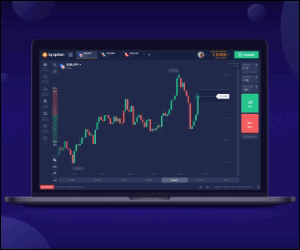With the country in an economic downturn, chances are your finances are feeling the pinch. This can lead you to make bad financial decisions such as skipping your vehicle payments. But every decision has consequences and if you don’t pay your instalments, the bank can take steps to repossess your car.
Personal finance website JustMoney finds out what happens when a lender wants to repossess your vehicle ‒ and how you can help prevent this dire event taking place.
According to Jaco Hamman, an attorney at Hahn and Hahn, when you miss your first payment and the lender notifies you of such and provides you with a certain number of days to catch up on your payment and you fail to pay, the lender is entitled to cancel its finance agreement with you.
Hamman says the lender must first institute action against you, such as the issuing of a summons.
“The summons will be delivered to your address via a sheriff. If you don’t defend the summons, then the lender can obtain judgement and a warrant of execution. It’s only through this warrant of execution that a sheriff can repossess your car,” says Hamman.
However, the lender is not supposed to bully and lie to you, alleging that your vehicle can be repossessed without following due process.
Be careful
Hamman says there are many lenders who use debt collectors to repossess your car. The debt collectors will arrive at your address with a form telling you that you need to sign the form and give back the vehicle.
“This form is actually a voluntary surrender form in which you state that you voluntarily surrender your vehicle. There’s no obligation whatsoever on you to sign such a form and return the vehicle to the lender or its debt collector,” says Hamman.
“Be sure that it’s a legitimate repossession through the sheriff. If not, you’re within your rights to refuse to hand back the vehicle,” he says.
Voluntary surrender
Section 127 of the National Credit Act gives provision for consumers to voluntarily surrender their cars. If you find that you’re no longer able to keep up with your car payments, you can hand it back to the lender. You can do this by writing a letter of notice informing the lender that you want to terminate your contract.
After five business days of handing in the letter, you must return the vehicle or arrange with your creditor how the car will be returned. Your creditor will then give you written notice setting out the estimated value of the car.
You’ll have 10 days to decide whether you still want the car or not. If you’re no longer interested, the lender will sell it. If there’s a shortfall in the sale, you’ll still be liable to pay for the vehicle. However, if there’s a surplus, the lender will credit your account.
You can avoid repossession
Hamman says you can avoid repossession by making a payment arrangement with the lender and if that fails, you must determine if you qualify for debt counselling.
He says it’s important to remember that once you’re under debt counselling the only way to change your counselling status is to pay off all your short-term credit agreements.
Your debt counselling status will reflect on your credit record and you won't be able to incur any further debt, and this could also have an effect on your ability to rent property.
Can you adjust your car instalments?
As with any credit agreement, you can ask your creditor to adjust your car instalments until you’re back on your feet. The creditor will reduce your instalments and extend the term of your loan. You can also ask your creditor to defer your payments, but this isn’t advisable as the interest won’t stop accumulating. It could land you in more debt, but it will provide temporary relief.
“Taking out a car loan is a three to five year commitment that ideally needs careful planning before you take on this responsibility,” says JustMoney Commercial Manager Sarah Nicholson.
“Given the economic downturn and rising unemployment, do your homework, shop around and negotiate before signing on the bottom line if you are in the market for a vehicle.”
You can make use of a free JustMoney vehicle finance calculator here.
Read a JustMoney article on tips on what you should do before getting a car loan here. You can also read about how to manage your vehicle maintenance costs here.
Also, keep in mind that you are at great financial risk if you drive an uninsured vehicle. Read a comprehensive guide on vehicle insurance here and you can also request a car insurance quote here.
JustMoney is a personal finance website that provides busy and digitally-savvy South Africans with easy access to financial products, services and information. It does this by partnering with trusted financial brands and creating informative, trustworthy advice. Check it out at JustMoney.
 3:20 AM
3:20 AM



No comments
Post a Comment